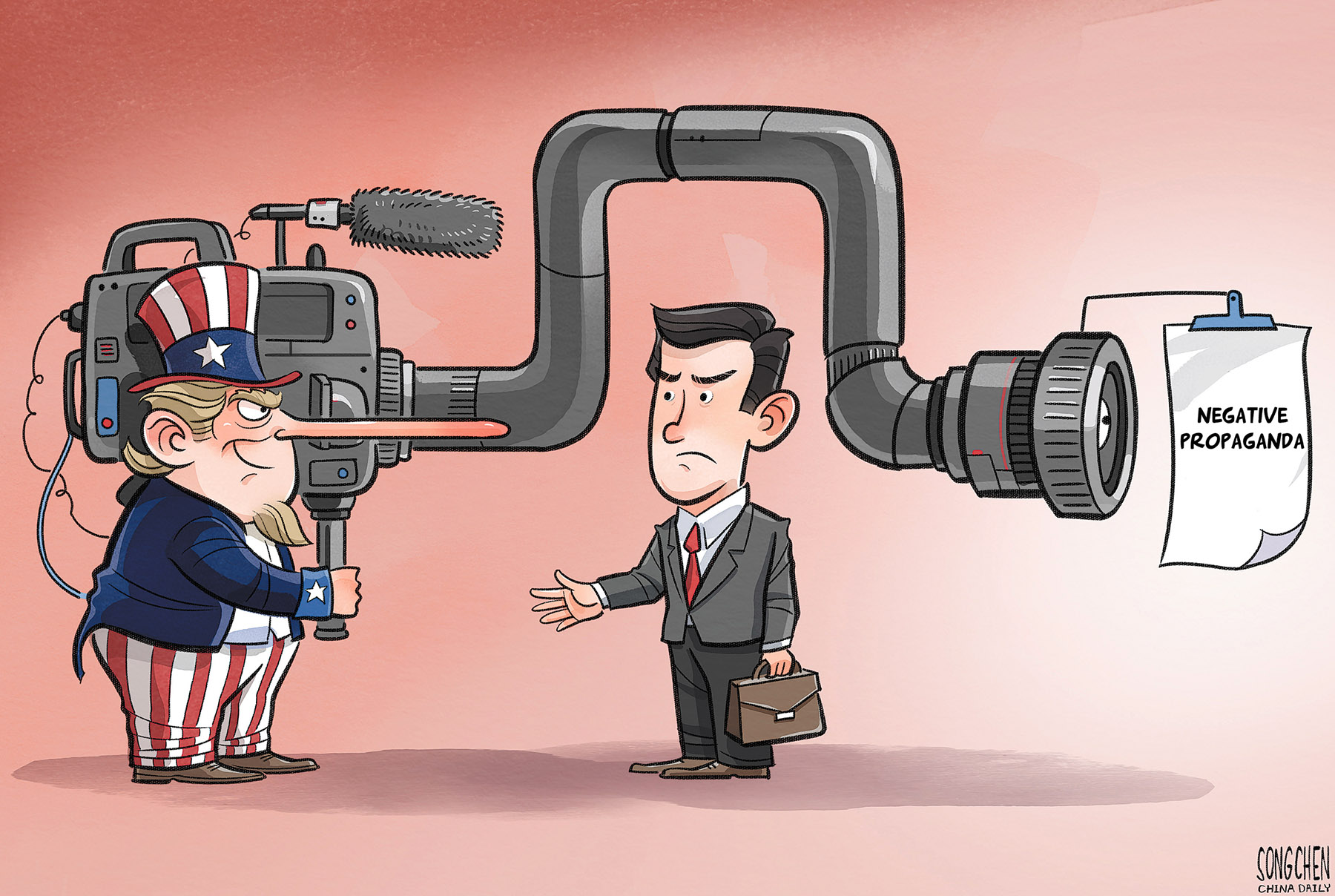US, allies tar Beijing in bid to exploit poor nations

The United States and other imperialist states are trying to portray China in a bad light. They hope to hide the main reasons for their hostility to China and why they have spurned almost all the overtures made to them by China for normalizing socioeconomic and political relations.
The fact is that they are alarmed that China’s relations are creating new hope for countries whose main objectives are oriented toward the development of their economies and peoples.
The US and its allies are very concerned that the new approach to international relations will blunt their own exploitative relations with the world in general and the developing countries in particular.
READ MORE: West doesn't have monopoly over democracy
This is why their whole propaganda is directed toward painting China in a negative light.
Since the middle of the last century when the collapse of colonialism began, the former colonial powers have taken a very hostile attitude to any country that sought to exercise its right to self-determination. It was in this period that the US began its notorious activities of destabilizing those countries.
Recall that in 1953 the direct interference of the US and the United Kingdom led to the downfall of the Mossadegh government of Iran.
Also in 1953, the US supported the UK in invading British Guiana (now Guyana) and removed its first-ever democratically elected government led by Cheddi Jagan. That administration was in office for only 133 days before it was removed.
That was only the beginning. In the following years, the US destabilized several countries that sought to uphold their independence.
Cuba, Vietnam, Chile, Nicaragua, South Africa (Washington supported the Apartheid regime, before later changing tack), Angola, Mozambique, Congo, and Grenada, to name just a few, all suffered direct and indirect military actions by the imperialist forces.
The main reason for such continuous aggression is that those countries — mainly developing countries — should remain underdeveloped so that their natural resources and cheap labor can be exploited by giant imperialist corporations.
It is estimated that between 1990 and 2015 the net flow of resources from the Global South to the imperialist states of the US, Canada, and the European Union amounted to some $242 trillion.
This was achieved through repatriation of profits by multinational corporations, debt repayments to banks in the collective West and to the International Monetary Fund and the World Bank, unequal trade (the large imperialist states control the World Trade Organization), and several other mechanisms.
This explains the hostility of the US and its partners to China, as China has adopted a totally different approach to its relations with the developing world. It is a win-win approach. These relations are designed to benefit the developing world and China mutually.
To achieve this, the Chinese authorities are driven by a desire to enhance the productive capacity of poor countries, including helping the developing world to enhance infrastructure such as ports, railways, roads, bridges, hospitals, and schools, and technical assistance in agriculture and other areas. It is also engaged in helping in the industrialization of many states.
Here the philosophy of the Chinese approach can be seen in stark contrast to the imperialist nations.
The imperialist countries’ main objective in the developing countries is to keep them dependent and poor. In this way, their resources can be easily exploited. The whole intention is to keep those countries as a source of raw materials and cheap labor. By keeping the countries in the Global South poor and powerless, they will be easy to exploit so that the imperialist states can enrich themselves.
ALSO READ: HK’s good stories need to be enriched with new content
China, on the other hand, wants to allow developing countries to move to a higher stage of value-added production where they can become prosperous. This idea is based on the conviction that when the countries of the Global South become more productive and increase their wealth, trade relations will get more robust, and all countries will be much better off. It would contribute to wealth creation and allow the formerly subjugated nations to consolidate their independence.
It is this policy that has caused the West to become so hostile to China as the poorer states have become economically less dependent on imperialism. It allows them to resist Western dictates by improving their bargaining power.
Despite all the negative propaganda of the West in the mainstream corporate media, the ordinary people of the world are beginning to see this fundamental difference, and are continuing to increase and improve relations with China as equal and respected participants in international relations.
The author is former president of Guyana. The author contributed this article to China Watch, a think tank powered by China Daily.
The views do not necessarily reflect those of China Daily.


